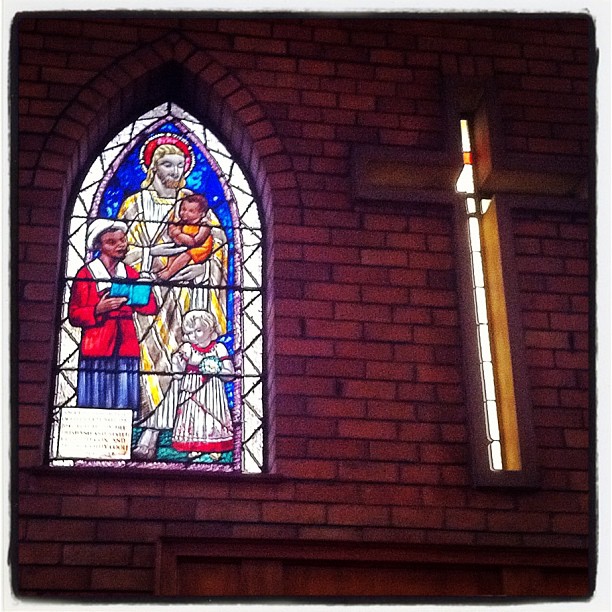I was fortunate to get a transcript of his sermon. It challenged and moved me deeply. I was reminded that at Christmas I celebrate the birth of the Prince of Peace, and that His birth and my faith in Him has radical consequences for my life.
The way of Jesus is a bold, loving and gracious way. It subverts the culture of power and dominance that occupies the popular mind of our time. It reminds me that Jesus came for peace, yet so much of the resources of this world, both financial and human, are spent 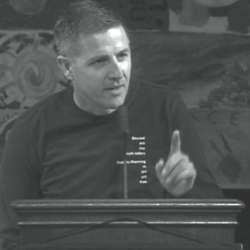 on war. The best of our minds, the majority of our budgets, are not applied towards peaceable aims - they are applied in the interests of vengence and violence. This is an affront to the Prince of Peace who came to live among us, living our life and dying our death in order to overcome both sin and death by His love.
on war. The best of our minds, the majority of our budgets, are not applied towards peaceable aims - they are applied in the interests of vengence and violence. This is an affront to the Prince of Peace who came to live among us, living our life and dying our death in order to overcome both sin and death by His love.
So, this Christmas I was challenged to remember that the Prince of Peace came as a man to die on a cross. The sacrifice of his life was for the salvation and transformation of the world. At Christmas I am challenged to remember that the Jesus of the manger is also the Jesus of the Cross.
So, this Christmas can I please encourage you to read Alan's powerful message? It may not be all that easy! But it will be deeply challenging.
I had to face myself and my own denial honestly as I read it. Some of what you read may not be easy to hear - it was not easy for me. But, I would rather face my lies, and the lies of our world with honesty and courage, than be party to deception and simply tell myself that all is well.
Here is the transcript of Alan's message which was entitled 'Not even God can use violence successfully' by the newsletter.
I wonder what you have just heard during the reading of those Hebrew scriptures. I wonder what you heard. What did you hear?
Did you hear Sunday school children singing, singing about animals going in two by two? Or did you hear children screaming panic-stricken, terrified, gasping for breath; people fleeing to higher ground, pleading, praying to be let into that ark – and if not me, then take my child. Knocking, banging, banging on the ark, let me in! Yet the doors of the ark remained sadistically closed.
What did you feel when those words were read? Did you feel the desperation, the despair, the drowning, the death?
And then after the 40 days, what did you see? The sunshine? Green lush, beautiful blossoming? Birds and bees? Or decomposing bodies, swelling, smelling – disease, decay gathered in every single nook and cranny?
The cruel results, the inevitable cruel results of divid- ing up a world with the simplistic notion that there are some who are wicked and others who are righteous, that there are two types of people in the world: good and bad. And if we can just get rid of the bad people, then we will have peace. There is an axis of evil in the world and if we can just destroy the axis of evil, then all will be safe and secure.
The persons who act on this notion of dividing the world into wicked people and righteous people should be brought before the International Court of Justice for crimes against humanity and all of creation – even if that person is God.
This deathly division between good people and bad people continues today especially in my faith tradition – especially in my faith tradition. The Christian faith, more than any other faith, has participated in this deathly division – dividing the world into good and bad, saved and unsaved, those who will be ushered into heaven and those who will be cast into hell. That thought process is nothing less than hate speech.
We go back to the text. These Hebrew narrators were incredibly courageous, risky in the extreme. You see, what these Hebrew narrators are trying to do is not endorse this primitive, partisan God or world view, but rather to cleverly, and with great risk, subvert it. They knew that the common world understanding of God was that God was some almighty superhero that would punish the wicked and bless the righteous. They knew that was the dominant religious world view and understanding of their time. So they risked casting God in that light in their narrative. They don’t believe it, they know that’s not so. But they cleverly start where the audience is.
There were righteous ones, just a few. God saved them and the wicked were punished and the audience applaud. Because that was their world view. Justice has been done, the wicked got what they deserved, and the righteous what was promised. And then the narrator moves to Act II. And we read that once the flood had subsided, wickedness remained.
Wickedness remained. In other words, God failed. God failed to eradicate evil through this weapon of mass destruction called the flood.
The narrator is bold to pen those words, “God failed.” God fails when God uses violence. Not even God can use violence successfully. Not even God. God’s war on terror became a war of terror. And God repents. Listen to these words: “I will never again destroy every living creature as I have done.”
And then God is converted and God takes God’s bow, not a rainbow, but a weapon, God’s bow, and hangs it up in the sky, just as a boxer hangs up his gloves – and says, “Never again will I fight.” It’s the great narrative of the disarmament of God.
God can do all things. God can do all things – except use violence successfully.
And you and I will not be converted to nonviolence until we first realize that God has long since been con- verted. It is impossible to be a peacemaker if we serve a violent God, an angry God, a God who needs blood to be satisfied. If the God we serve, if the God we worship, has blood on his hands (I use that male pronoun deliberately), then the likelihood will be that we will too.
Using violence, God fails. So how much more will we fail if we use it? And you and I witness the failure of violence all around us all the time.
Violence fails to deliver on what it promises – peace and security. Since 9/11, billions and billions and billions of your dollars have been invested in violence, military might. And this country is less safe than it ever was. It doesn’t matter how long you have to stand in line to wait to get onto an airplane – it is less safe, less secure. And if it is not more afraid, it is definitely more feared.
Ask the people of Pakistan who scan the skies for drones... where the people who fly them can have breakfast in the morning with their family, go to the office and sit in a comfortable chair and go to war in Afghani- stan; and then can come home and have lunch with their family, and then in the afternoon they can go to war in Pakistan.
There is no victory in vengeance. Satan cannot cast out Satan; violence cannot cast out violence. War is a poor chisel to carve out a peaceable future says Martin Luther King, and yet it remains our biggest investment.
If you know history, you will know that empires do not explode. Empires implode. And the reason why empires implode is because they spend more than they have on trying to defend (read attack) who they are.
And if you just question safety and security, you will be labeled unpatriotic. You can commit the most grave of sins in the name of safety and security.
Listening to the presidential debates, if you could call them that, president Obama was asked, “What is the greatest threat to America?” Notice, please, the very narrow nationalistic question that is. His answer: “Terror- ism, and China.”
I want to say to Barack Obama the greatest threat to America is not terrorism, it’s not China. The greatest threat to America is... America. You are your worst enemy. No one will explode you – you will implode. If God fails using violence, so will the USA.
God is a nonviolent God.
Now, a couple of years ago in my country, there was a murder that took place and it was discovered that it was a family murder. An 18-year-old girl killed her 13-year-old sister, stabbed her repeatedly. The mother, as you can imagine, grieved, like only a mother can grieve. And yet at the same time as she was grieving the loss of her daughter, she stood in solidarity with her other daughter, as only, you can imagine, a mother can do. She was reported to have said, “I want to hate her, but I can’t.”
She went to court every day when her daughter was on trial. She stood behind her and embraced her when she was convicted. She visited her daughter every available opportunity in prison and when her daughter was finally released, she welcomed her home.
Mrs. Du Toit, the mother, found herself in the painful, yet privileged position of God, being parent to both murdered and murderer. At one and the same time. “I want to hate her but I can’t. I’m her mother.”
God is not only a nonviolent God, but God is the heavenly parent of both murdered and murderer. And to take vengeance on the murderer is simply to multiply the grief of God. If someone had come up to that mother and said, “Let us kill this daughter,” she would say, “No – don’t double my grief.”
Not only is this a nonviolent God, not only does this God grieve on all sides of the border, but when we remember Saul traveling on the road to Damascus because he had written permission to extend his war on terror, he is stopped in his tracks with these words from the Divine: “Why, why, why are you persecuting me?”
Please notice what the Divine did not say. The Divine did not say, “Why are you persecuting them?” but, “Why are you persecuting me?” The Divine takes persecution personally.
It is not, “Why are you persecuting the Afghans, and the Iraqis, and the Pakistanis, and whoever else? it’s, “Why are you persecuting me?” We need to hear that question here today.
So not only is God a nonviolent God. Not only does God grieve on both sides. God takes persecution personally.
Our violence violates God. All violence – we see from that illustration – is family violence. Cain and Abel were
brothers. Did you know that death enters the Hebrew scriptures through murder? – reminding us that all violence is family violence? That there are seven billion chosen, chosen people in the world? That the apartheid between nations must come to an end?
There is something that distresses me more than anything else every time I listen to the president of this country speak. When he ends his speeches with the words, “God Bless America.”
Someone please remind him that there is a world larger than America. And not until he begins to have a vision for the world and not just a nation – (long pause)
The only flag I am prepared to salute, the only flag, the only flag that I am prepared to stand up for is the flag with a picture of the globe on it. Can you give your flag away? And claim a new flag? And certainly remove it from your sanctuaries.
Jesus said if you want to save your life, give it away. If you want to save your nation...give it away.
If you want to save your flag – give it away. If you want to save your religion – give it away.
We know that it is easier to identify with the victim than the perpetrator. It is easier to see the splinter in our neighbor’s eye than it is to see the log in our own eye. It is easier to watch a documentary called Pray the Devil Back to Hell than to face the devil in us and the hell that we create.
I watched that documentary for the first time here. I was deeply moved by it...the courage of woman.
I was inspired when one of them said, “With this tee shirt, I am powerful.” I was horrified at the children, the children carrying guns that were too big for them to carry. I wept at the senseless suffering.
But that was a distant devil to observe. Much more difficult to watch a documentary of the devil that we are, and the hell that we create. Some people here have asked me, “Gosh, listening to Bernard Lafayette the other night, – how is it possible to be able to draw that love from the wells that live within to be able to even love the person beating us?”
Now it is a fine question to ask, but I think there is an earlier question. You see, that question assumes that we are going to be the victim. That question assumes we are going to be the one who is going to be beaten and kicked. The balance of probability that any of us in this room are going to go through that is pretty slim.
You see, we identify with the victim. The question we should be asking is, “How do we stop beating and killing others who are praying for the love to be able to forgive us?” What our dollars do in this world –
You know the date. But do you know what happened during 9/11? 9/11. When country and the hopes of that country were shattered. The thousands of people dying, thousands of people dying, not just on 9/11, but the days after. 9/11. You know the day, you know what I am talking about. Yes, I am talking about 1973. 9/11. When Pinochet came into power in Chile with the help of our dollars, a reign of terror for 16 years until 1990 – we know the date.
The 20th of August 1998 – in Sudan, the Clinton administration bombs Al-Shifa pharmaceutical company that provided 50% of all medication in the Sudan. I went to the Sudan a number of years after that. I watched mothers carrying children, hopelessly dying of malaria,
not able to get medication. Do you know the date: 20th of August 1998?
We will not have peace in this world, we will not become peacemakers, until we know the dates of terror that we have inflicted on others as well as we know the dates of terror that others have inflicted on us.
By the way, the 20th of August 1998 was covered in the Boston Globe, the Washington Post, The Guardian, the New York Times.
Last night we listened to Leymah Gbowee. She spoke powerfully about an analogy of violence and anger: pouring it into a violent cup or a nonviolent cup. I wonder if our problem is that we are not angry enough.
What makes you angry? When the price of gas goes up? Or when more of our children go and learn how to kill and we tell them that they are heroes when all they are are victims to the lie, the lie that says you can be a killer with honor. The lie that says you can actually be alive while you kill another.
We are addicted to violence. This nation knows that more than any other. It is never going to be easy to kick an addiction. We are always going to think, “One more drink.” And the one more drink becomes the first of many more. The alcoholic needs to admit that she is, that he is, powerless. And then join together with other people who feel powerless too. And admit their addiction, confess it.
“Hi, my name is Alan and I belong to the most violent nation in the world – that spends more money on the military than all other nations put together.”
Can we say those words? And only when we are able to admit that in the presence of others and then rely on a power – however you understand that power – that is higher than us, to begin to transform us. To make a stringent list of the things that we have done wrong. To admit them, and then to make amends. To go through, as a nation, a 12-step program. As the most violent nation in the world. Sign up. And then, in our powerlessness, we will discover what Michael Nagler invited us to see: nonviolence as that power that is unleashed when all desire to harm is overcome; and only then will we be feeling powerful again.
People have been asking me, “Alan, what do we do, what do we do, where do I stand, what do I do?” Well, it is very difficult to transform a system that we are depen- dent on....for our livelihood. Very difficult. So what we need to do is in those little AA communities, confessing that we are a violent people, we need to somehow wean ourselves off the system that we are dependent on.
I mean, don’t you get it? Let me use Christian language for a moment. I am dependent – this is the contradiction Ilivewithinmylife –Iamdependentonmysinformy survival. Sin, meaning “wages of death, way of death.” I am dependent on a way of life that is in actual fact a way of death, for my survival. And when I turn against my sin, it feels like I am dying, even though I am coming alive.
We have to admit that we are dependent on our sin for our survival. But it, like all addiction, is killing us and those after us and those around us—not to mention God’s creation.
Now let me close.
If you had interviewed political analysts in the Middle Eastern region in December, 2010, and if you had asked them the question, “What is the likelihood of there being
a regime change in this part of the world – places like Tunisia and Egypt – places supported by these dollars, our dollars, superpower dollars?” the political analysts would have said that it would be impossible. That would be December, 2010. Interview those same analysts in Febru- ary, 2011, and they would say that it was inevitable. As intifada and the Arab Spring began to spread and take root – because a vegetable seller set himself alight which kindled the fire of freedom and justice in the hearts and minds of families in that region.
You see, political analysts are not to be counted upon in regard to what is possible in this world. Liberation, peace, will come like a thief in the night, and it is not for you and I to know dates or times.
The most amazing thing about the people who were involved in the struggle against Apartheid, for me, were that they joined the struggle with no expectation to see liberation themselves. And yet, they joined it, not for certain results, but because it was right.
We have to liberate ourselves from our addiction to certain results. Thomas Merton said that years ago, set yourself free from limiting results. Just do what you need to do. The results will come.
We heard that over these few days. Who knew that when a 14-year-old boy, when he is treated with dignity and respect and given a social security number and given a driver’s license, who knew that what that would do would refine a conscience that could lead a people that could set people free? Who knew?
It was an unmeasurable act of human relationship and we need to awaken ourselves to the unmeasurableness of our actions. That we cannot actually see the impact thereof – and so, do what you do not knowing what impact God will do with it through the world... Do you really think that Leymah Gbowee, last night, expected to be standing here, 15 years ago?
So what do we do? I want to ask you to do something specific. But the truth is that I am 44 years old. Right? If I have a good innings, I’m at half time. I’m at half time. And I am sorry to say that looking out at some of you, you are past half time. And looking at some of you more closely, it looks like some of you are in injury time. I’m serious. You don’t have too many years left. Okay? So why don’t you make them count? You have nothing to lose.
I want to speak specifically to the people of my faith – Christians, Methodists. When is the Methodist Church of this nation going to refuse to allow members of its church to enter the military? When? When will children’s church teachers teach the children that that’s the gravest sin, that there is nothing heroic in it, to kill family.
Why don’t you do it? Let us call the troops back home from Afghanistan. Tell them to hand in their guns and their uniforms. Do it! You have nothing to lose. The game is nearly over. It’s the right thing to do. There are people on that side praying, praying that you will do that.
Let’s lament, let’s lament. Let’s not build any more monuments.
I have stood here today for one person. His name is Bradley Manning. You asked me, “What gives me hope?” People have asked, “Alan, are you hopeful?”
I said, “I am hopeful because of one person, Bradley Manning.” Bradley Manning is 24 years old...24 years old. He’s spent the last 902 days in a military prison, most of which has been in solitary confinement in chains. Bradley Manning. All because he revealed documents that exposed the truth of the killing of Iraqis from an American helicopter. And he sits in one of your prisons. Bradley Manning.
You want to know what you can do? You can give your life for his freedom, because he has given his life for the freedom of this world. Pray for his sanity, pray for his healing. Bradley Manning. Bradley Manning.
If there is anything that I have said here that is true, may it set us free.
Please could I ask you to pray for Alan and his ministry? I can only imagine that it takes great courage and conviction to speak the truth so boldly.
Alan and I have just finished recording a series of about 24 episodes for 1Africa and CVC Media in which we did a survey of the whole of the Bible from the perspectives of poverty and justice. The series is called 'DnA' and should be released shortly. Please keep an eye on this website (http://www.dionforster.com) and Alan's website (http://www.aslowwalk.org) for details.
 Saturday, December 24, 2022 at 2:27PM
Saturday, December 24, 2022 at 2:27PM 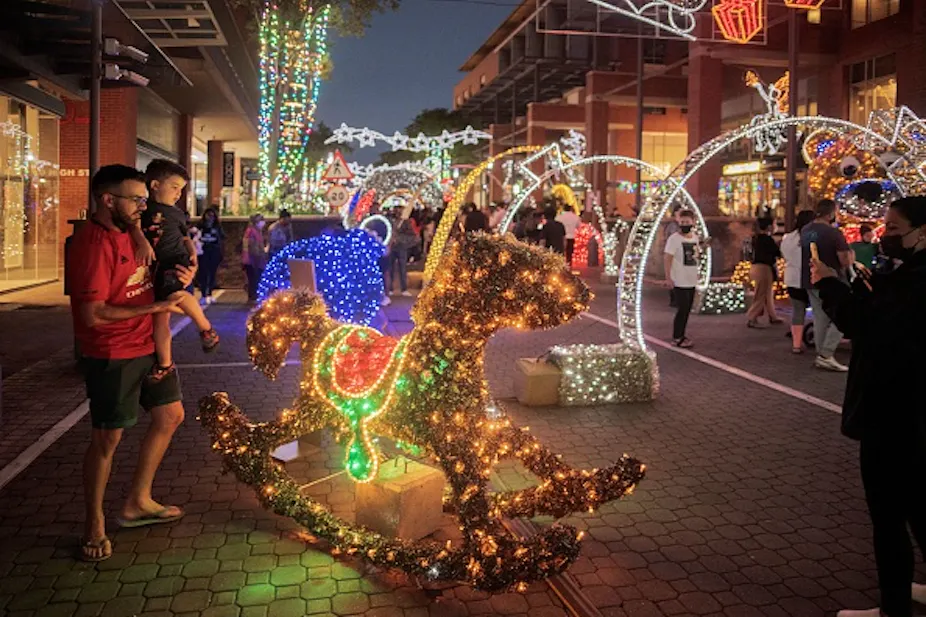 People enjoying Christmas decorations in Johannesburg, South Africa. Luca Sola/AFP via Getty ImagesIf the media, popular entertainment, and retail habits are taken as indicators then the celebration of Christmas is no longer just the reserve of Christians. This has some consequences for the religious and non-religious alike.
People enjoying Christmas decorations in Johannesburg, South Africa. Luca Sola/AFP via Getty ImagesIf the media, popular entertainment, and retail habits are taken as indicators then the celebration of Christmas is no longer just the reserve of Christians. This has some consequences for the religious and non-religious alike.


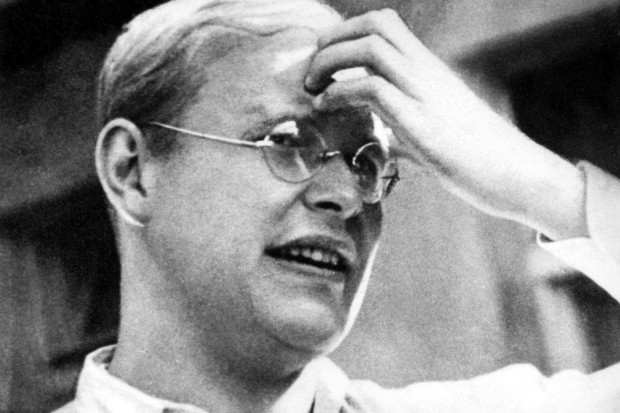
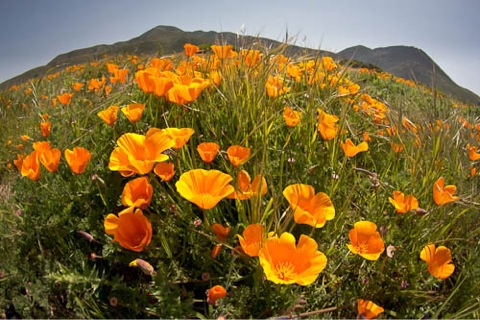 A blessed Easter to all. May Christ raise you and the whole of creation to newness of life.
A blessed Easter to all. May Christ raise you and the whole of creation to newness of life.
